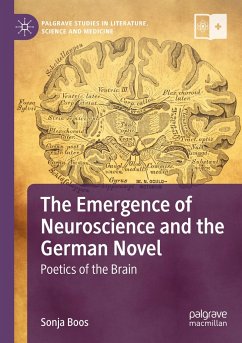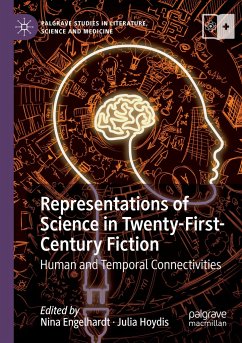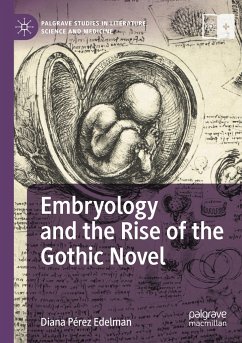
The Emergence of Neuroscience and the German Novel
Poetics of the Brain
Versandkostenfrei!
Versandfertig in 6-10 Tagen
91,99 €
inkl. MwSt.
Weitere Ausgaben:

PAYBACK Punkte
46 °P sammeln!
The Emergence of Neuroscience and the German Novel: Poetics of the Brain revises the dominant narrative about the distinctive psychological inwardness and introspective depth of the German novel by reinterpreting the novel's development from the perspective of the nascent discipline of neuroscience, the emergence of which is coterminous with the rise of the novel form. In particular, it asks how the novel's formal properties-stylistic, narrative, rhetorical, and figurative-correlate with the formation of a neuroscientific discourse, and how the former may have assisted, disrupted, and/or inten...
The Emergence of Neuroscience and the German Novel: Poetics of the Brain revises the dominant narrative about the distinctive psychological inwardness and introspective depth of the German novel by reinterpreting the novel's development from the perspective of the nascent discipline of neuroscience, the emergence of which is coterminous with the rise of the novel form. In particular, it asks how the novel's formal properties-stylistic, narrative, rhetorical, and figurative-correlate with the formation of a neuroscientific discourse, and how the former may have assisted, disrupted, and/or intensified the medical articulation of neurological concepts. This study poses the question: how does this rapidly evolving field emerge in the context of nineteenth century cultural practices and what were the conditions for its emergence in the German-speaking world specifically? Where did neuroscience begin and how did it broaden in scope? And most crucially, to what degree does it owe its existence to literature?












